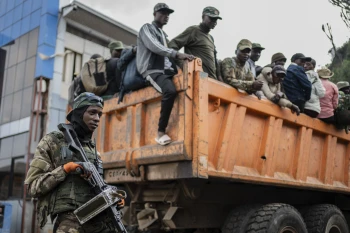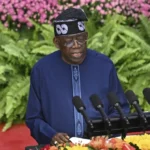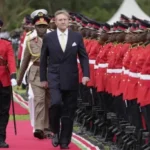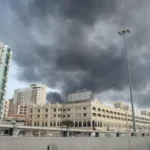In a significant development for regional stability and peace, the presidents of the Democratic Republic of the Congo (DRC) and Rwanda recently met in Qatar to discuss the escalating insurgency in eastern Congo, an area long plagued by conflict. This meeting underscores the urgent need for collaborative approaches to end violence and promote peace in the Great Lakes region of Africa.
Background of the Conflict
Eastern Congo has been besieged by violence for decades, largely due to a complex interplay of political, ethnic, and economic factors. Various armed groups, including the Democratic Forces for the Liberation of Congo (FDLR) and the M23 rebel group, have engaged in armed conflict. These groups have been accused of committing widespread human rights abuses, contributing to a dire humanitarian situation characterized by millions of internally displaced persons and rampant poverty.
The region’s instability is often exacerbated by Rwanda’s involvement, rooted in historical tensions and accusations of support for certain rebel factions operating within Congo. The precarious relationship between Congo and Rwanda has historically undermined regional security efforts, making diplomatic engagements essential for peace.
The Qatar Meeting: A Critical Diplomatic Engagement
The meetings held in Qatar reflected a critical diplomatic effort to address mutual concerns and foster a cooperative environment between the two nations. Congolese President Felix Tshisekedi and Rwandan President Paul Kagame engaged in high-level talks facilitated by Qatari authorities, emphasizing the need for dialogue over military confrontation.
While the specifics of the discussions have not been fully disclosed, both leaders acknowledged the persistent threats posed by insurgent groups and the need for joint military operations to enhance security and eradicate these factions. The Qatari government’s longstanding role as a mediator in international conflicts has positioned it as a suitable host for these talks, aimed at seeking sustainable peace in the region.
Regional Implications
The implications of this meeting extend beyond the borders of the DRC and Rwanda. Both nations recognized that a stable eastern Congo is crucial for regional peace and economic development. The discussions included not only military strategies but also potential economic cooperation that could uplift local communities, thereby addressing some of the root causes of insurgency and conflict.
However, skepticism remains among human rights organizations and local communities regarding the authenticity of intentions. Trust deficits, rooted in historical grievances and mutual suspicions, need to be addressed for any proposed solutions to be effective. Therefore, effective communication between governments and civil society will be pivotal moving forward.
International Community’s Role
The international community must play a proactive role in supporting this diplomatic initiative. Organizations such as the African Union and the United Nations can facilitate dialogue and provide resources for conflict resolution, peacebuilding initiatives, and humanitarian aid. Continuous monitoring of the situation is essential to hold both countries accountable for their commitments to peace.
Furthermore, the international community can assist in promoting development projects that focus on education, health care, and economic growth in eastern Congo. Such initiatives can be vital in reducing the incentives for insurgency, ultimately leading to a more stable region.
Conclusion
The recent meeting between the presidents of Congo and Rwanda in Qatar marks a pivotal step in addressing the longstanding insurgency challenges faced by eastern Congo. While the journey toward peace may remain fraught with difficulties, ongoing dialogue and collective action can pave the way for a brighter future for the millions living in the shadow of conflict. It is an opportunity for both nations to demonstrate their commitment to peace and stability, not only for their citizens but for the entire region. As the world watches, the next steps taken by both governments will be crucial in shaping the future landscape of the Great Lakes region.
Email Us on editorial@nnafrica.com













